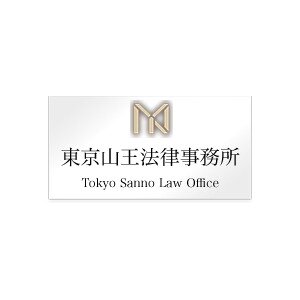Best New Business Formation Lawyers in Japan
Share your needs with us, get contacted by law firms.
Free. Takes 2 min.
Or refine your search by selecting a city:
List of the best lawyers in Japan
About New Business Formation Law in Japan
New business formation in Japan is governed by a comprehensive legal framework designed to foster entrepreneurship while ensuring compliance with local regulations. The Japanese government encourages business growth through various incentives and a streamlined registration process. Entrepreneurs can choose from multiple business structures, including Corporations (Kabushiki Kaisha), Limited Liability Companies (Godo Kaisha), and Sole Proprietorships, each with specific requirements and benefits.
Why You May Need a Lawyer
Legal expertise is crucial in navigating the complexities of new business formation in Japan. Entrepreneurs often seek legal help for:
- Choosing the right business structure that aligns with their strategic goals and legal obligations.
- Drafting and reviewing foundational documents such as articles of incorporation.
- Ensuring compliance with local, national, and international regulations.
- Negotiating and drafting contracts with investors, partners, and suppliers.
- Protecting intellectual property rights.
- Navigating tax obligations and potential incentives.
- Resolving disputes and mitigating liabilities.
Local Laws Overview
Several key aspects of local laws are significant for new business formation in Japan:
- Corporate Law: Japan’s corporate law outlines the requirements for forming legal entities, their governance, and operational mandates.
- Taxation: Businesses must comply with the national corporate tax and local taxes, which vary by municipality.
- Registration Requirements: New businesses must be registered with the Legal Affairs Bureau, which involves submitting various required documents.
- Intellectual Property: Protection through trademarks, patents, and copyrights is crucial in Japan’s competitive market.
- Employment Law: Compliance with labor laws, which cover employment contracts, working conditions, and employee rights, is mandatory.
Frequently Asked Questions
What are the main types of business structures available in Japan?
The primary business structures include Kabushiki Kaisha (KK), Godo Kaisha (GK), and Sole Proprietorship. Each has unique features and legal implications.
How long does it take to incorporate a company in Japan?
Typically, incorporation can take anywhere from a few weeks to several months, depending on the complexity of the business structure and document preparation.
Is it possible for foreign nationals to start a business in Japan?
Yes, foreign nationals can incorporate a business in Japan, though it may require a local representative and appropriate visa arrangements.
What documentation is required for business registration?
Key documents include the articles of incorporation, representative's seal and signature, corporate seal registration, and notification of opening a business office.
Are there minimum capital requirements for starting a business in Japan?
Minimum capital requirements can vary. There is no specific minimum for Godo Kaisha (GK), but it's typically recommended to have at least JPY 1 for Kabushiki Kaisha (KK) under capital.
What taxes must a new business be aware of?
Businesses must manage corporate tax, consumption tax, and potentially local enterprise tax, keeping in mind deductions and incentives available.
How can a business protect its intellectual property in Japan?
Intellectual property can be safeguarded through registration of patents, trademarks, and copyrights with the Japan Patent Office.
What labor laws should a new business in Japan be aware of?
Businesses must comply with regulations covering minimum wage, working hours, social insurance, and conditions outlined within the labor law.
How can one find reliable business partners in Japan?
Networking through local chambers of commerce, industry seminars, and business exhibitions can be effective. The Japanese External Trade Organization (JETRO) also offers resources for partnership opportunities.
Are there any government incentives for new businesses in Japan?
Incentives can include tax breaks, grants, and subsidies, especially in industries that drive technological innovation or regional development.
Additional Resources
For further information, consider consulting the following organizations:
- The Japan External Trade Organization (JETRO) provides guidance for foreign investors looking to start a business in Japan.
- The Legal Affairs Bureau can offer detailed insights into legal registration procedures.
- The Ministry of Economy, Trade and Industry (METI) outlines policies and incentives for new businesses.
- Local chambers of commerce are valuable for networking and gathering regional business insights.
Next Steps
If you are considering starting a new business in Japan and require legal assistance, begin with the following steps:
- Initial Consultation: Schedule a consultation with a legal professional specializing in Japanese business law to discuss your business plans and requirements.
- Documentation Preparation: Work with your lawyer to prepare necessary documents and ensure compliance with Japanese corporate law.
- Legal Representation: Consider appointing legal representation for ongoing support in negotiations, compliance, and dispute resolution.
- Continual Learning: Engage with local business seminars and workshops to stay informed about new trends and regulations affecting business operations in Japan.
Lawzana helps you find the best lawyers and law firms in Japan through a curated and pre-screened list of qualified legal professionals. Our platform offers rankings and detailed profiles of attorneys and law firms, allowing you to compare based on practice areas, including New Business Formation, experience, and client feedback.
Each profile includes a description of the firm's areas of practice, client reviews, team members and partners, year of establishment, spoken languages, office locations, contact information, social media presence, and any published articles or resources. Most firms on our platform speak English and are experienced in both local and international legal matters.
Get a quote from top-rated law firms in Japan — quickly, securely, and without unnecessary hassle.
Disclaimer:
The information provided on this page is for general informational purposes only and does not constitute legal advice. While we strive to ensure the accuracy and relevance of the content, legal information may change over time, and interpretations of the law can vary. You should always consult with a qualified legal professional for advice specific to your situation.
We disclaim all liability for actions taken or not taken based on the content of this page. If you believe any information is incorrect or outdated, please contact us, and we will review and update it where appropriate.
Browse new business formation law firms by city in Japan
Refine your search by selecting a city.















